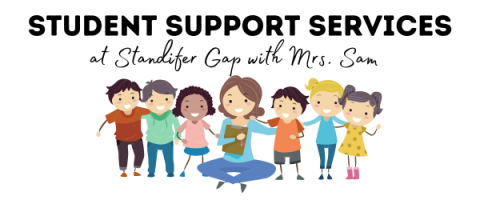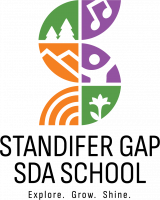
Counsel. Educate. Advocate. Empower.
Have you ever wondered what the school counselor’s role looks like day-to-day? This FAQ highlights how I support students, families, and teachers, and what you can expect from school counseling this year.
School Counseling FAQ
What does the school counselor do?
I support the academic, social-emotional, and behavioral development of students by:
Teaching classroom lessons that give students coping tools, emotional awareness, and strategies for handling everyday challenges.
Meeting with students individually on a short-term basis to check in and provide support.
Helping with conflict resolution when issues arise between students.
Collaborating with teachers and families to promote student well-being.
What is your goal in classroom lessons?
My classroom sessions focus on giving students practical, age-appropriate skills they can use daily. Topics often include:
Understanding and expressing feelings
Healthy ways to manage stress, frustration, or sadness
Friendship and peer relationships
Problem-solving and conflict resolution
Building empathy, kindness, and confidence
How do students get to see the counselor?
Students may:
Be referred by a teacher or parent (via the referral form: School Counselor Referral Form )
Fill out a self-referral slip and place it in the Counselor Mailbox at the front of the school
Ask to see me directly
I always check in with students in a gentle, age-appropriate way and work to build trust over time.
Is this therapy or long-term counseling?
No — my role in the school is short-term, school-based support.
Typically, individual sessions last a few weeks to a couple of months.
My goal is to provide focused support without consistently pulling students away from learning.
If a student needs ongoing counseling or more intensive help, I partner with families to connect them to outside providers for longer-term therapy.
What kinds of concerns can the counselor help with?
Common areas I support include:
Friendship and peer skills
Emotion regulation (anger, sadness, frustration)
Separation anxiety or school worries
Building confidence and self-esteem
Conflict resolution
Behavior or self-control challenges
What’s the difference between school counseling and outside therapy?
School Counseling: Short-term, skills-based support during the school day, focused on helping students succeed at school.
Outside Therapy: Longer-term treatment for ongoing concerns (such as anxiety, depression, or trauma), usually taking place weekly in a clinical setting.
If outside therapy is needed, I work with families to find appropriate resources.
How can I request support for a student?
Parents: You may also use the referral form (School Counselor Referral Form) to request support for your child.
Students: Fill out a self-referral slip and drop it in the Counselor Mailbox.
I’m happy to meet with you, discuss your concerns, and find the best way to support your child.
We are excited and honored to serve you and your child!
CONFIDENTIALITY & SECURITY NOTICE: This email may contain confidential student or health information. Email is not a secure or encrypted form of communication. Please avoid including personal health information (PHI) in your reply. For sensitive matters, contact me by phone or through a secure system. If you have received this message in error, please notify me and delete it.
CRISIS RESOURCES:
• Call or text 988 (Suicide and Crisis Lifeline)
• Tennessee Statewide Crisis Line: 855-274-7471 (855-CRISIS-1)
• Text “TN” to 741741 (Crisis Text Line)
• If this is a life-threatening emergency, call 911 immediately.
